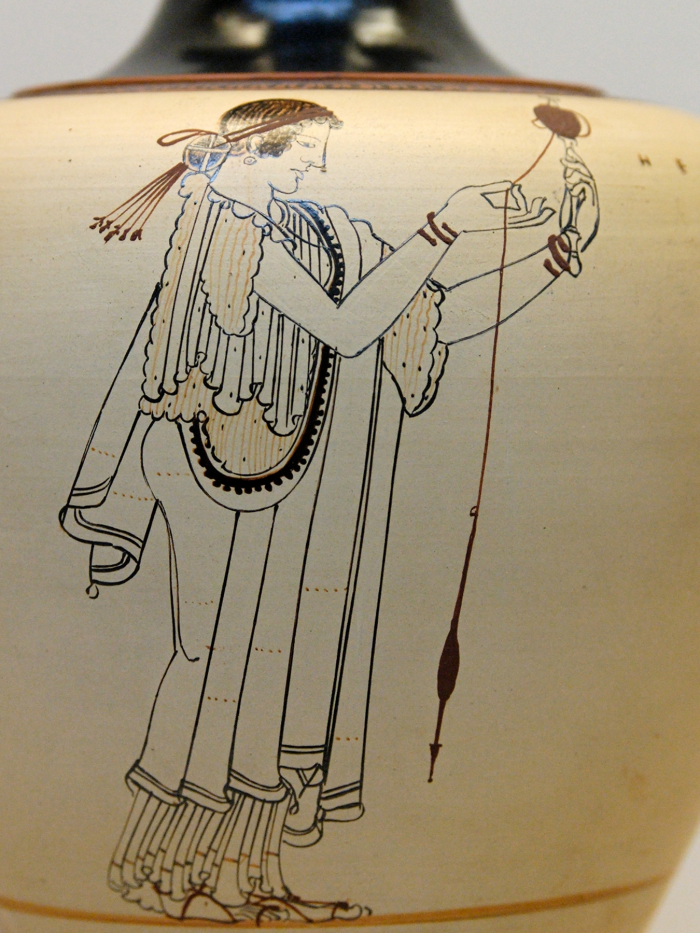The fourth poem in what survives of Sulpicia’s corpus, this direct and scornful reproach of Cerinthus’ adultery is the voice of a strong-willed, emotionally autonomous Roman woman. Drawing attention to her own birth (‘Servi filia Sulpicia’ – Sulpicia, daugher of Servius), she denounces Cerinthus’ pursuit of girls who demand no respect: those wearing the common toga and the ‘scortum’ (prostitute) of line 4. This poem works fantastically as a counterpart to Ovid’s love elegy (see the amores, ars amatoria, and remedia amoris), providing a voice ‘from the other side’ of chauvinistic adultery.
James Green
I should thank you for allowing yourself so much freedom
at my expense, lest I suddenly trip by some foolish error.
May the pursuit of any whore or country-girl loaded down
by a basket of wool be worthier than Sulpicia, born of Servius:
And they are concerned on my behalf, they to whom
the greatest cause of anxiety is that I don’t yield to ignoble sheets.
Translation by James Green
Gratum est, securus multum quod iam tibi de me
permittis, subito ne male inepta cadam.
Sit tibi cura togae potior pressumque quasillo
scortum quam Servi filia Sulpicia:
Solliciti sunt pro nobis, quibus illa dolori est,
ne cedam ignoto, maxima causa, toro.
Teaching and study suggestions
This poem provides an interesting comparison with Ovid’s love elegy, e.g. amores 2.2, on the theme of adultery, dignity, and presentations of femininity.


No Comments